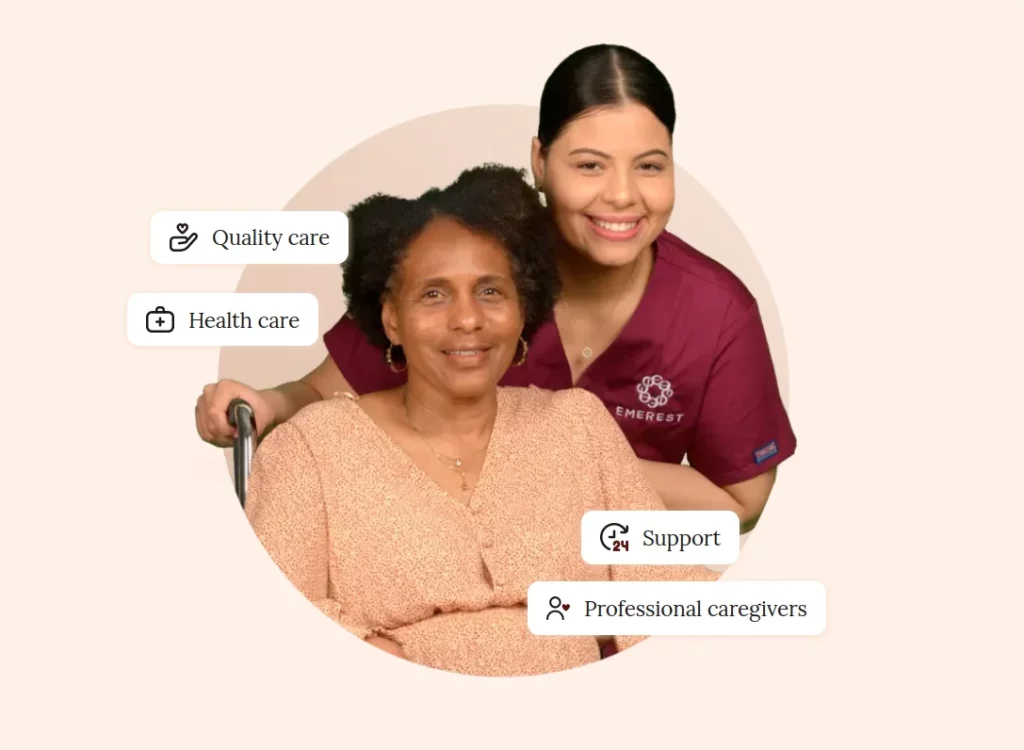When hiring a caregiver, ensuring a smooth and empathetic fit for your loved ones in need of care is vital. There must be a thorough assessment of the caregiver’s qualifications and the alignment of their skills and certifications with the needs of their loved ones.
Paying attention to qualifications and interpersonal skills is essential when embarking on the caregiver hiring process, but it is not enough. Below are eight questions to consider asking during an interview with a caregiver.
Question 1: What motivated you to pursue a career in caregiving?
This question is important because it helps you know if the person is passionate about caregiving and committed to the role. It provides insights into their personal interest and connection to the profession, empathy, and dedication to positively impacting their loved ones. Someone who will meet the needs of your loved ones is needed for the task.
Question 2: What skills or certifications do you possess that make you well-suited for this role?
Asking a caregiver about their skills and certifications helps determine if they have the needed requirements for the job. Since caregivers have different areas of specialization, you should hire the one whose area of specialization matches your loved ones’ needs.
Question 3: Are you comfortable assisting with personal care tasks like bathing and medication management?
Asking about a caregiver’s comfort with helping with tasks like bathing and medication management is essential, as this informs you if the caregiver is willing and able to care for your loved ones’ hygiene. These tasks are necessary for individuals who may have limitations due to illness and age.
A caregiver should be able to carry out simple tasks such as helping your loved ones bathe, choosing appropriate clothing and helping the individuals put it on, and assisting with using toilets and cleanliness. They also help with mobility assistance from one place to another and ensure the individuals use their medications and the correct dosage as the physician prescribes.
Question 4: What hobbies do you engage in?
A hobby is an opportunity to establish a personal connection and collaboration between the caregiver and your loved one. Knowing about their hobbies gives an insight into how they balance work and manage stress. It also allows you to assess the compatibility of your loved one and the caregiver.
For example, suppose your loved one loves reading but is visually impaired and can no longer read, and the caregiver loves reading. In that case, the caregiver can read to your loved one during leisure hours, and this alignment in their interests and preferences will enhance the bond between them, which can contribute to a more holistic understanding of the caregiver.
Question 5: Do you have any restrictions regarding your availability for work hours?
Inquiring about a caregiver’s limitations concerning work hours helps to know their availability during the specific hours you need them for your loved ones.
It’s important to maintain a continuous care regimen for your loved one, prevent conflict, and help build a caregiving relationship on a mutual understanding.
Question 6: What types of meals are you experienced in preparing?
Inquiring about what type of food a caregiver can cook is essential to knowing the caregiver’s knowledge of meals and ability to prepare nutritional meals that can accommodate the dietary preferences of your loved ones, cultural sensitivity, and (religious) nutritional practices, and also to ensure that the meals align with your loved one’s preferences.
Question 7: How do you handle emergencies during care?
This is crucial to ensuring the safety and well-being of loved ones. The caregiver’s assessment skills are to quickly assess the situation during an emergency, to communicate promptly to notify medical professionals in case of an emergency, and to inquire if the caregiver has received training in handling emergencies such as first aid and any other certifications.
The caregiver’s ability to remain calm under pressure and assure the client during emergencies should be assessed.
Question 8: Can you provide examples of how you manage stressful situations?
Asking a caregiver about how they manage stressful situations allows you to assess their ability to handle challenges. Understanding their approach provides insights into their problem-solving skills, emotional stability, and crucial caregiving qualities. It helps ensure the caregiver is well-equipped to provide consistent and effective care, especially in demanding situations.
Where can you find a caregiver?

You can check out the following places for a great caregiver:
- Medical Facilities: Hospitals and nursing homes have recommendations and may be able to connect you with home care agencies, like us here at Emerest.
- Referrals: Seek recommendations from family, friends, and colleagues., Depending on the state, your loved one may be able to hire them directly as part of our Family & Friends Caregiver Program, which we have available in Missouri, Connecticut and Pennsylvania. As part of the Emerest Family and Friends Caregiver Program, you might even qualify to act as your loved ones’ caregiver!
Note that the caregiver’s responsibility goes beyond physical assistance. Their work also includes the ability to foster your loved ones’ dignity, independence, and overall quality of life. The basis of successful personal care and its tasks rely on things like effective communication, respect, and empathy, all approached with sensitivity to the person’s preferences and needs.
Emerest Home Care Offers Reputable Caregivers.

Here at Emerest Home Care, we are a credible home care agency that offers different types of services to meet the unique needs of every client. Emerest Home Care offers traditional home care services with an experienced and expert staff, so you can rest assured that your loved one is safe. Emerest offers the following services:
- Social support and companionship services: Emerest Home Care offers social support and companionship services to enhance every client’s emotional well-being and mental and social health.
- Household duties: Emerest Home Care offers top-rated essential services in homes ranging from cleaning the house and laundry services to assisting in the food supply that makes clients enjoy a clean and healthy environment.
- An individualized care regimen: Emerest Home offers a top-notch structured care regimen plan designed to meet the needs of individuals’ unique circumstances and health conditions to optimize their overall health.
- Trained and dedicated caregivers: At Emerest Home Care, we have well-trained, experienced, and dedicated caregivers to help with personal hygiene and aid in the movement of the clients, such as walking, carrying, and medication management. The caregivers are reliable, and duties are discharged with empathy to improve the quality of life.